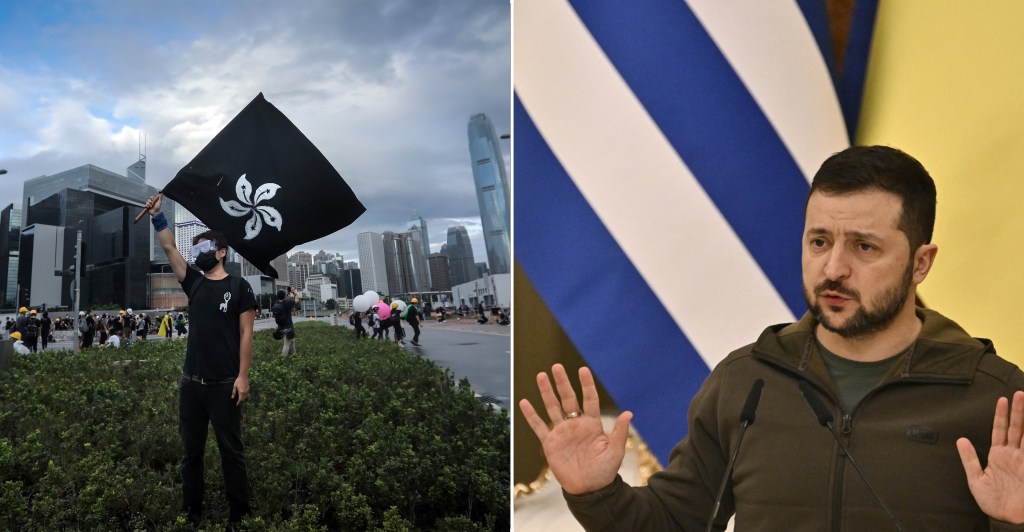HONG KONG — For a few hours Sunday, it seemed as if the entire population of Hong Kong was out on the streets. In reality, it may have been closer than you’d think. For a city of 7 million, a boggling 1.03 million, most of them clad in white, came out to protest, according to organizers.
They were marching against one thing: a government-proposed bill that would allow the extradition of suspected criminals to mainland China, where human rights abuses are rife and death sentences common.
Videos by VICE
It was a stunning display of defiance that demonstrated just how deeply the population fears the encroaching influence of Beijing, and Hong Kongers’ increasing feeling of desperation and helplessness to stop it. For many, Sunday’s protest felt like their last chance to have their voice heard.

Hong Kong isn’t new to mass demonstrations. A 2014 pro-democracy movement shut down key parts of the city for 79 days, while a 2003 march against a proposed security bill had 500,000 people in attendance and led to the territory’s leader stepping down. Just last week, organizers estimated that 180,000 people showed up to remember the Tiananmen Square massacre, in open defiance of Beijing’s tight-lipped, revisionist approach to that history.
But Sunday’s protest marked a show of unity arguably not seen in the city since the million-strong march in 1989 in response to the Tiananmen massacre. Hong Kong residents young and old, and from all cross-sections of society, turned up.
Many protesters felt that their efforts would ultimately prove futile, and they may be right: On Monday Carrie Lam, Hong Kong’s embattled chief executive, said she would not back down on the bill. It will most likely pass, given that the city’s legislative body is stacked with pro-Beijing politicians.

But the march clearly unnerved Beijing. Chinese state media blamed “foreign forces” and downplayed the scale of the mass-demonstration in the mainland.
VICE News was on the streets of Hong Kong during Sunday’s march, and spoke to longtime protesters and those joining the movement for the first time.

Slash, 34, designer
Slash never considered himself politically active. It was his first time joining a protest, but he said it might also be his — and the city’s — last. “Even though it might not make a difference, this was one thing that we could do. At least we can show our faces instead of sitting at home,” he said. “This time, I realized that I really had to do something.”

Jimmy Chan, 42, salesman
The march was a family-friendly affair, with many parents bringing their small children. Chan said that the bill could be “harmful to all Hong Kong people.” He said he brought his baby son to the protest because he represents the “next generation” that will have to live in Hong Kong.
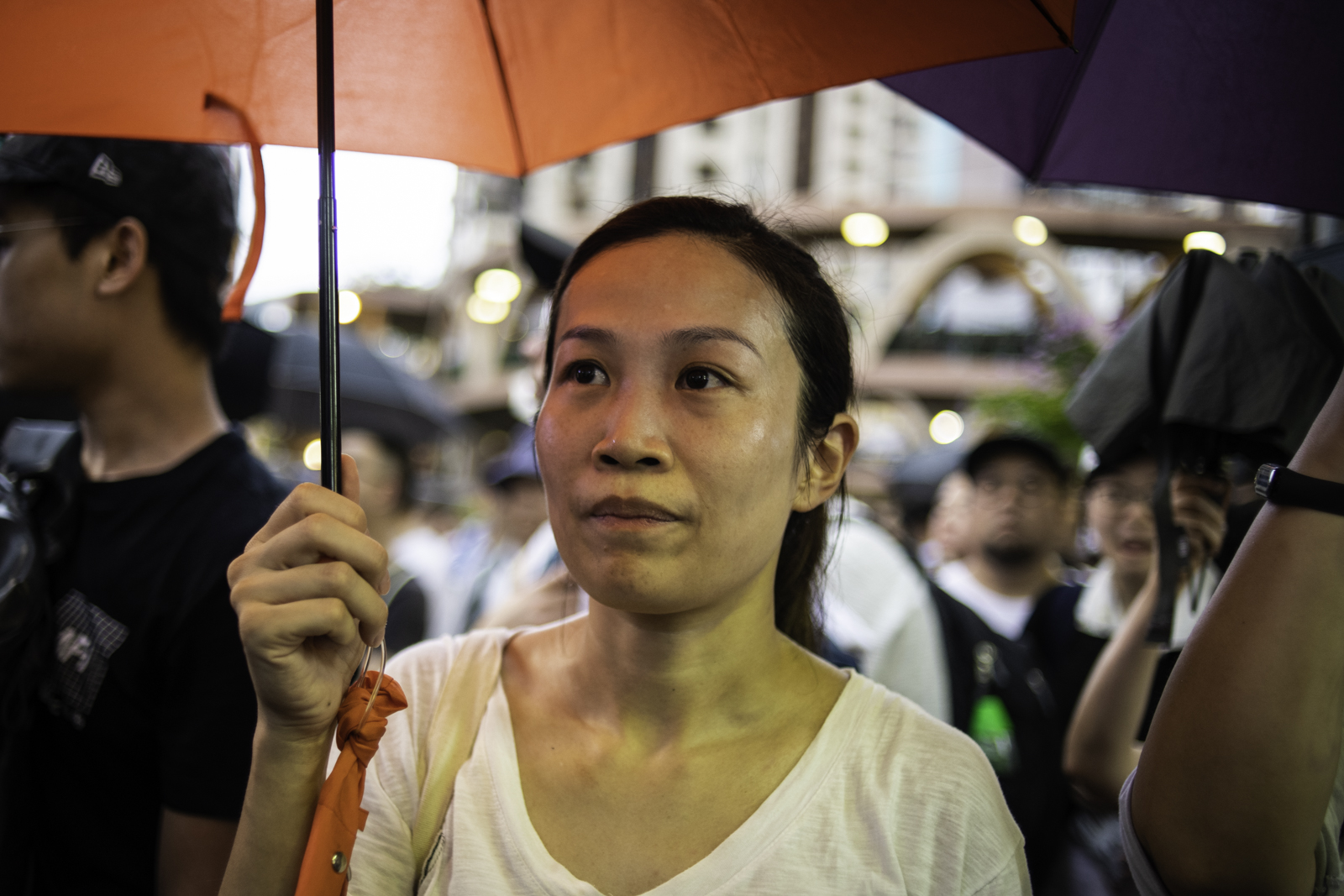
Ms. Yeung, 30s, human resources
“Freedom of speech is something that Hong Kong always valued, but if they pass this bill, we are scared that a lot of freedoms will be gone,” Yeung said. She was born in the U.K. and raised in Hong Kong.
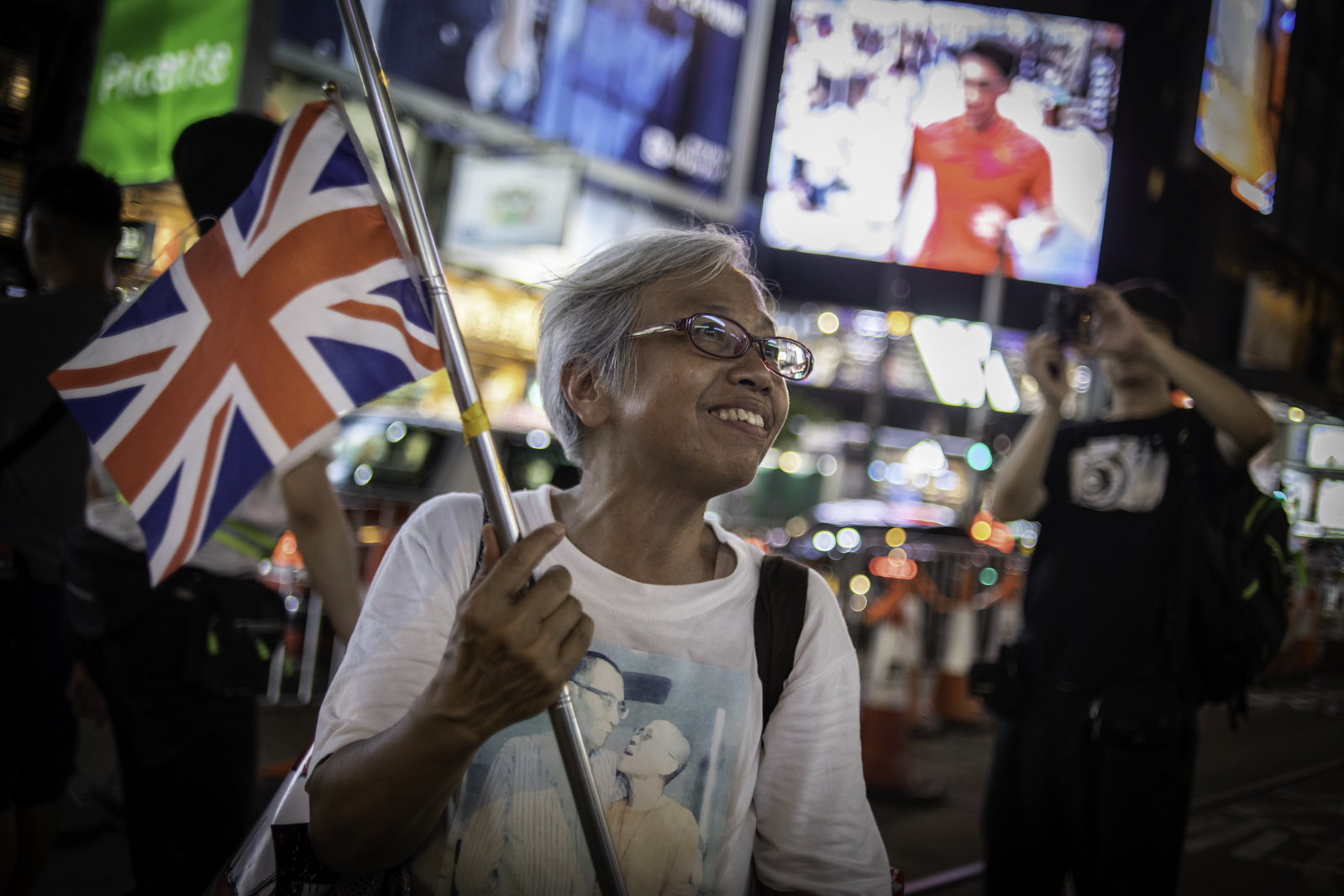
Alexandra Wong, 64, retired
Wong is a dedicated protester who always brings along her British flag, to make a point that she feels Hong Kong was better off under colonial rule. At that time, she said, “I wasn’t satisfied about English rule. You asked for a full glass of water, and they gave you a half glass. But it turns out the Chinese Community Party are worse; they took all our water and broke our glass, too.”
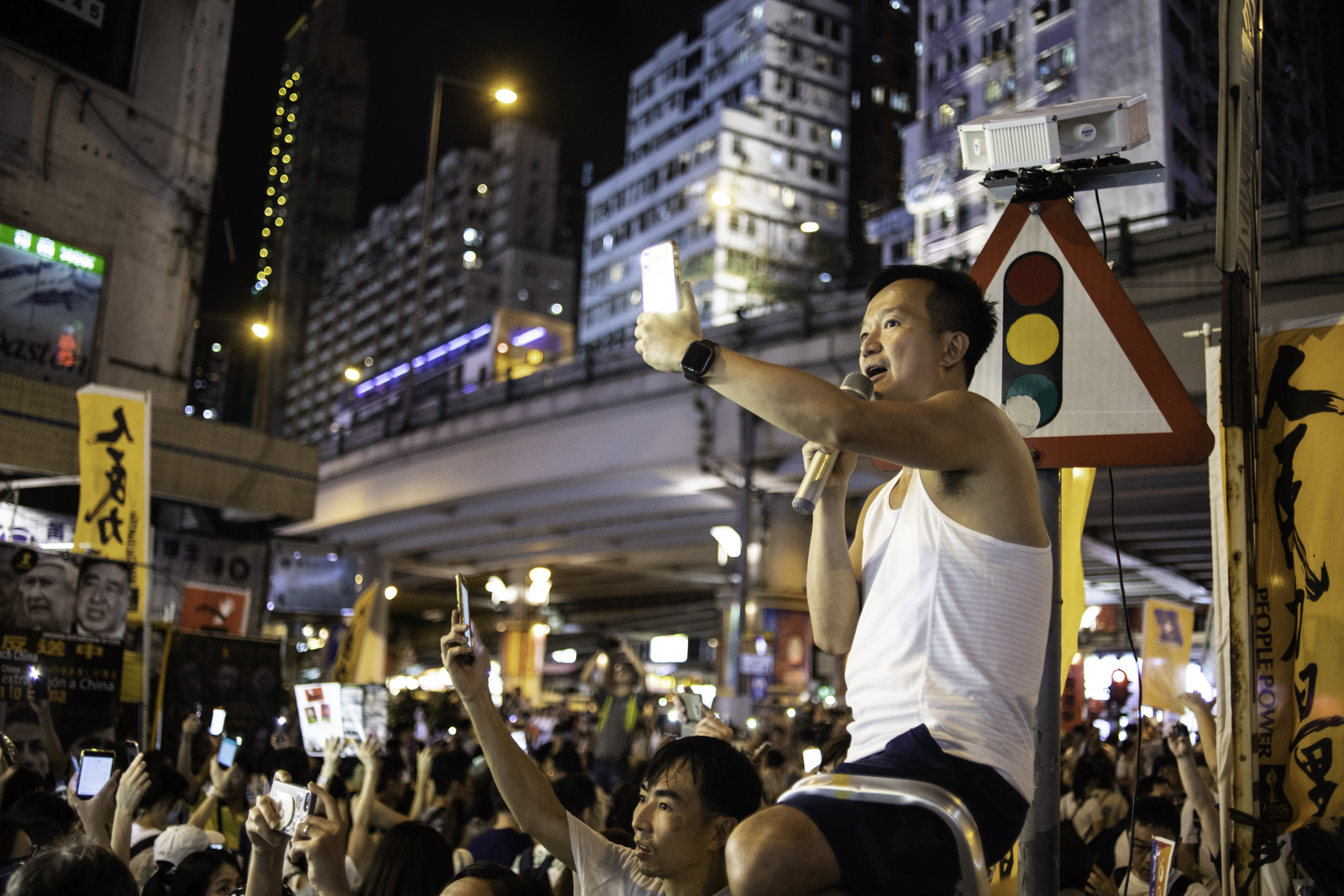

Benny Wong, 50, construction worker
Wong summarized the fears that many protesters felt: “I’m not necessarily afraid of getting arrested, but I think this will have a big effect on Hong Kong. I feel like [China] will be able to use different ways to arrest you, and that will lead to no freedom, and not dare to speak out. I was actually really emotional [seeing all these people], and I felt glad I participated, that I could be one of the Hong Kong people who showed up.”
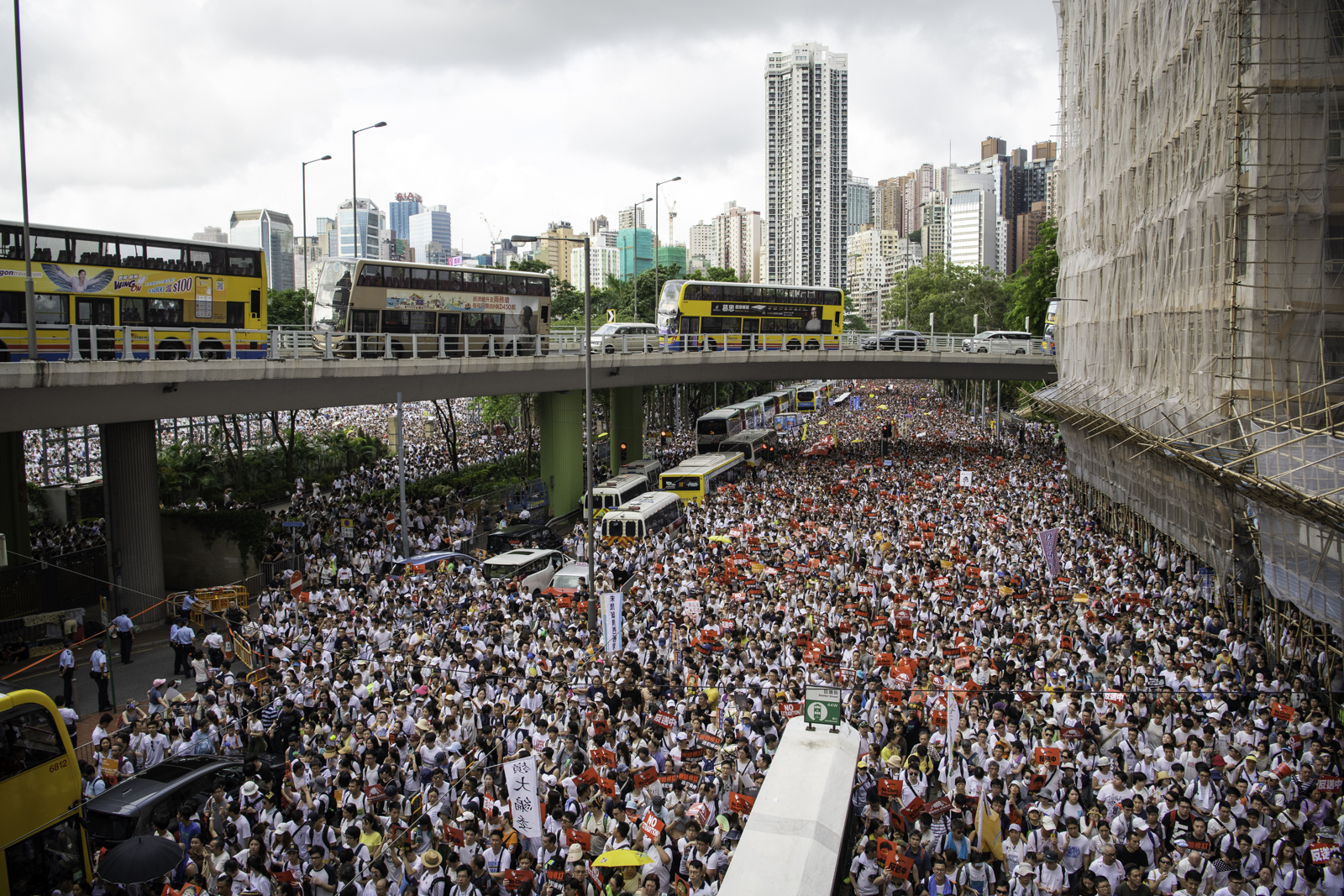

Cover image: A protester wore a prison cell costume and a T-shirt that said “Hong Kong.” (Laurel Chor for VICE News). All photos and text by Laurel Chor.

